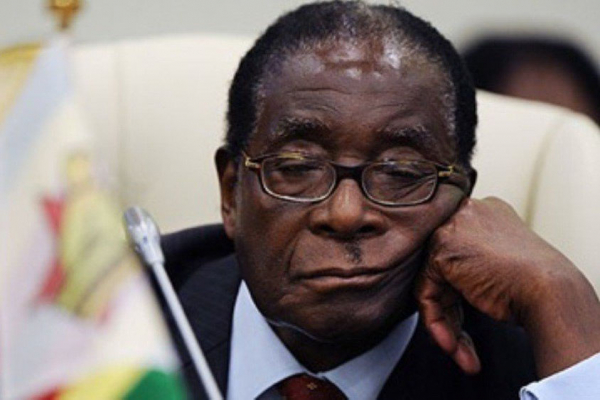
Guest column: Learnmore Zuze
The ancient wisdom of old has one classic nugget, which has remained as true as it was when old barefooted Socrates said it at the banks of the Ganges. Socrates is credited for having said that when one finds themselves in a hole they must stop digging. This is pure logic and the truth of it applies to the Zimbabwean situation with equal force.
Former President Robert Mugabe, dug a huge hole which had almost become a mass grave for the entire nation, sending thousands into forced exile and demolishing a once vibrant economy.
He put the country in the limelight for all the negative reasons, inviting the first round of sanctions against Zimbabwe from the international community since the late Rhodesian Prime Minister Ian Smith.
For the first time, education under Mugabe lost its dignity and the effects remain with us today. Many previously functional institutions of the State and parastatals were destroyed.
The hole he dug led to en-masse departure of Zimbabweans to foreign lands. The coming in, therefore, into power of Emmerson Mnangagwa was a massive turn around for Zimbabwe, or so the world thought.
But today, the excitement has fizzled out; the shouts of hope have turned into shouts of agony. Apparently, the British government, amongst others who backed Zimbabwe after Mugabe’s departure, seem convinced that Mnangagwa’s government won’t bring the desired change. More punitive sanctions look imminent. Britain’s Minister of State for Foreign Affairs, Harriet Baldwin, insists that until soldiers who killed civillians are brought to book, no international bailout should be extended to Zimbabwe. This is the general feeling within the international community. It is really heart-breaking that the “Mugabeic” way of dealing with dissent has brought us again to the same place.
Any tinge of hope that had existed insofar as Mnangagwa’s administration’s ability to lift the economy from the doldrums has been completely erased by the events of the last three weeks.
- Chamisa under fire over US$120K donation
- Mavhunga puts DeMbare into Chibuku quarterfinals
- Pension funds bet on Cabora Bassa oilfields
- Councils defy govt fire tender directive
Keep Reading
It is extremely sad, seeing as it is that the government of Zimbabwe, on whose shoulders an enormous weight of transforming a battered and bruised economy was placed, continues to wantonly destroy the residual credibility the world had extended to it following the ouster of Mugabe.
The government led by Mnangagwa, following the deposing of Mugabe in 2017, inherited a huge dose of goodwill from the world. Zimbabwe had never had the eyes of the world on it so much as when Mugabe left office on that highly fancied day in November. Chief amongst the things that the world expected to change was a complete departure from the State’s use of its apparatus to butcher and bludgeon its own citizens.
It was to be expected that the mending of the economy was not going to be an overnight event. The majority of people seemed to have had the general consensus that Mnangagwa’s administration needed time.
The economy was not ruined overnight; it has been years of misrule and gross human rights abuses that led to economic sanctions being plastered on the country.
Zimbabwe was, at one point, described as ‘an outpost of tyranny’ following the violence, unaccounted for murders and brutalisation of its own vulnerable people. Rights abuses had become an embodiment of Mugabe’s rule. Mugabe didn’t mind the ugly tag, even priding himself to be “Hitler four-fold”. At the time, the world in general lost faith in the rebirth of Zimbabwe.
A plethora of alternative measures were mooted to save Zimbabwe and, in the main, it was thought that an invasion by one of the superpowers would ameliorate the suffering of Zimbabwe and restore Zimbabwe’s dignity, but the freefall could not end until November 2017.
It is no wonder why there was euphoria in the world when news of Mugabe’s resignation filtered.
There was an air of so much expectation when Mnangagwa came into power, but it is quite disheartening to learn that the actions of the current government, as clearly evidenced by the conduct of its army, has proven to be cut from the same, if not worse cloth than that of Mugabe.
The abuse of citizens and, more importantly failure to defend the Constitution are the cardinal sins of the present government.
While it is understandable that there are factors beyond one’s control that may impede the onus to improve the economy, the same cannot be said of human rights abuses.
It does not cost a penny for the men in power to immediately stop the military, whose actions they are vicariously liable for.
The army does not and cannot act outside the orders it receives. The alleged rape and harassment of women and children by ‘men in army uniforms’, therefore, must be understood in its proper context.
Going by the Constitution of Zimbabwe, it is the President only who has the power to deploy and send the army on such tasks. We can, therefore, safely, according to the
Constitution, state that the government is not an accomplice, but a chief player in the unrestrained attacks against its citizens. The mooted sanctions against Zimbabwe are a direct product of the incorrigibility of the current government.
The government cannot blame anyone at all; they have no legal standing to do so. By their own actions, they have destroyed all the credibility they had.
They have squandered good will and the impending sanctions were surely invited by none other persons, but themselves.











